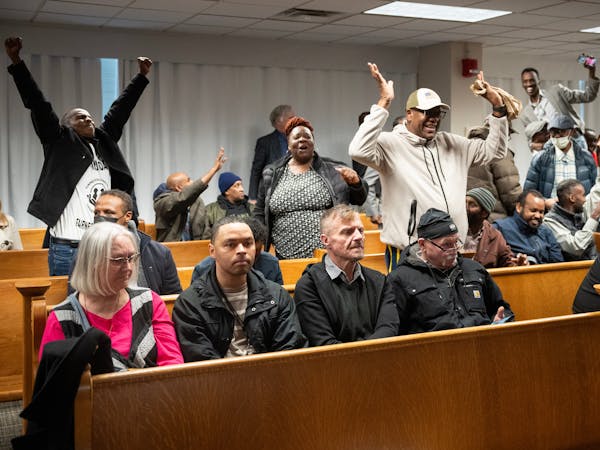Gov. Tim Walz urged the Minneapolis City Council on Monday to reconsider a minimum-pay requirement for rideshare drivers before Uber and Lyft make good on their vows to leave.
"Let's get back and figure this out," he said after a budget-related news conference at the Capitol.
Walz said he'd like to find a statewide solution on driver pay and lamented that the council made a decision affecting the whole state without a back-up plan to replace the rideshare services. With no indication the council is willing to reverse course, Walz said he wasn't optimistic even as legislators raced to offer solutions.
"We're willing to try and play a role in it," the governor said. "But again, I'm just very frustrated because I view this as a utility that is needed and to lose this, I don't think it's a plan to think somebody might step in. That's not really a plan."
Republicans and DFLers have introduced divergent bills that aim to give the state control over rideshare regulations. Uber and Lyft say they will leave on May 1. Uber said it would quit the entire metro while Lyft said it won't operate in Minneapolis because the council overrode Mayor Jacob Frey's veto of the minimum pay requirement.
Many rideshare drivers have complained that it has become increasingly difficult to earn a living, even as customers have seen rising prices for rides. The pay issue surfaced late in the 2023 legislative session and Walz vetoed a bill to boost driver pay. He assembled an advisory group on the topic with the aim of developing legislation for 2024.
Walz said the council should have waited until a statewide study on driver earnings was released because it pointed to a sweet spot that could accommodate both the drivers and the companies.
"We certainly want to see folks be paid a fair wage for their work," Walz said. "We also want to make sure that that wage structure allows for the business to go forward."
But Walz repeatedly said he wasn't hopeful because of the City Hall action. He said the companies and the city are playing a "game of chicken" that hurts those who rely on the rides, including those with disabilities.
The governor said he's not a fan of the state pre-empting local communities, but he was upset that the council action came just hours before the state report on driver pay came out with a roadmap to addressing pay. He also said the rideshare companies need to work with the Legislature.
"My hope here is that at the end of the day, we can take a step back and then everybody comes to the table," he said. "It is not acceptable to not continue."
Sen. Omar Fateh, DFL-Minneapolis, introduced a bill earlier this month that would establish a statewide standard of pay, similar to his bill the governor vetoed last year. Fateh has said the bill could be brought up again in the Rules Committee later this session.
House Republicans have a counterproposal. On Monday, Rep. Elliott Engen, R-White Bear Township, introduced a bill that would ban any local regulations on ride-hailing, putting all the power with the state. He called the Minneapolis ordinance well-intentioned, but said drivers now worry about being unemployed. Engen said he does not have DFL support for his bill.
As of Monday in Minneapolis, there appeared little chance of anything changing, although some players spent the weekend exploring options.
The mayor has traditionally opposed state laws pre-empting city authority, but said last week he was open to it in this case.
In the meantime, his administration has shifted focus to the practical: preparing for the exodus of the city's only two licensed rideshare companies.
Frey is trying to set up a meeting with a number of stakeholders next week, potentially including advocates for people with disabilities and officials from the airport, hospitality industry and downtown business community, spokeswoman Katie Lauer said.
Star Tribune staff writer Dave Orrick contributed to this story.
Former DFL Senate Majority Leader Kari Dziedzic dies of cancer at age 62

How the Star Tribune is covering the 2024 election

Fact check: Walz and Vance made questionable claims during only VP debate

In Tim Walz's home city, opposing groups watch him debate on the national stage


